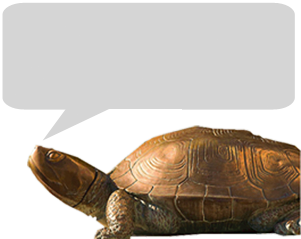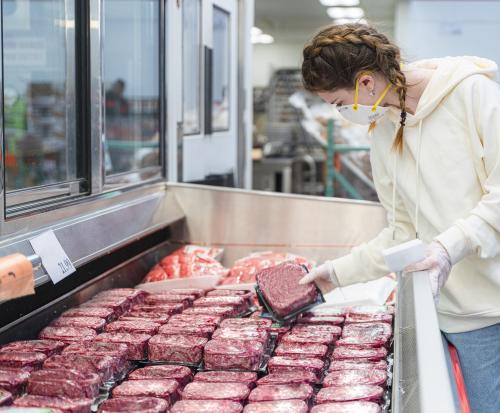We Are What We [M]eat
We Are What We [M]eat
With many researchers saying that COVID-19 most likely reached humans through bats—a transmission pattern similar to what took place with H1NI, the “swine flu,” nearly a decade prior—one Department of Geographical Sciences professor wonders: Would we be where we are today if our society were less reliant on meat?
This is one of many questions that arise from a new study published in Nature Food by Dr. Giovanni Baiocchi, fellow department researchers Dr. Kuishuang Feng and Dr. Laixiang Sun, Pan He at Cardiff University, and Klaus Hubacek at University of Groningen. The researchers confirmed what many would already suspect—that wealthier Americans tend to eat less sugar and more meats, dairy and fruits, but have a worse impact on the environment.
“Individuals of higher socioeconomic status are responsible for higher environmental impacts because they consume more impact-intensive protein foods, including dairy and livestock products, and seafood,” Feng said.
The researchers also found that making dietary changes capable of decreasing food-related greenhouse gas emissions by 2%, land use by 24%, and energy consumption by 4% is technically within budget for 95% of Americans. It is not, however, something easily achieved by 38% of Black and Latinx individuals in the lowest income and education groups.
Some solutions are clear: “For the poorest households, nutritious food affordability can be increased by targeted income support in combination with nutritional assistance,” Sun said. “The current regulatory and policy frameworks in the food sector [can also] be revised to support healthier diets and set up adequate monitoring and accountability systems to ensure compliance.”
Other solutions are more ambiguous.
“If a lot of people can afford [to have a healthier diet with less environmental impact], what should we be doing to make sure that people take advantage of this win-win situation where they can improve their diet, get healthier possibly, and have a lower impact on the environment? How do we overcome cultural barriers, and how do we motivate people to switch?” Baiocchi asked.
Baiocchi is currently conducting research independently and with the human dimension team at UMD to more accurately answer those questions, but he already believes that current and future Terps will play a large part in driving change.
“The best hope is to engage students and help them see the big picture systemically and show them how they can also make a difference by being engaged in solving problems, decision making, and actuate change,” Baiocchi said. “For example, look at COVID; we know that there are viruses within the animals we breed, and when they interact they can bring about pandemics. We know that the food system and the way we manage it has caused and will cause more and more problems—and we know that if you don’t eat well, you are more prone to get a virus.
“It’s a complex system, but we can improve the system and make sure we are more protected against future pandemics, climate change and adverse health impacts through education, systemic thinking, and taking action,” Baiocchi said.
Image of woman shopping for meat at a grocery store via iStockphoto.com.
September 13, 2021
Prev Next
Connect
Did You Know

UMD is the only major public research university inside the Washington, DC beltway!!

